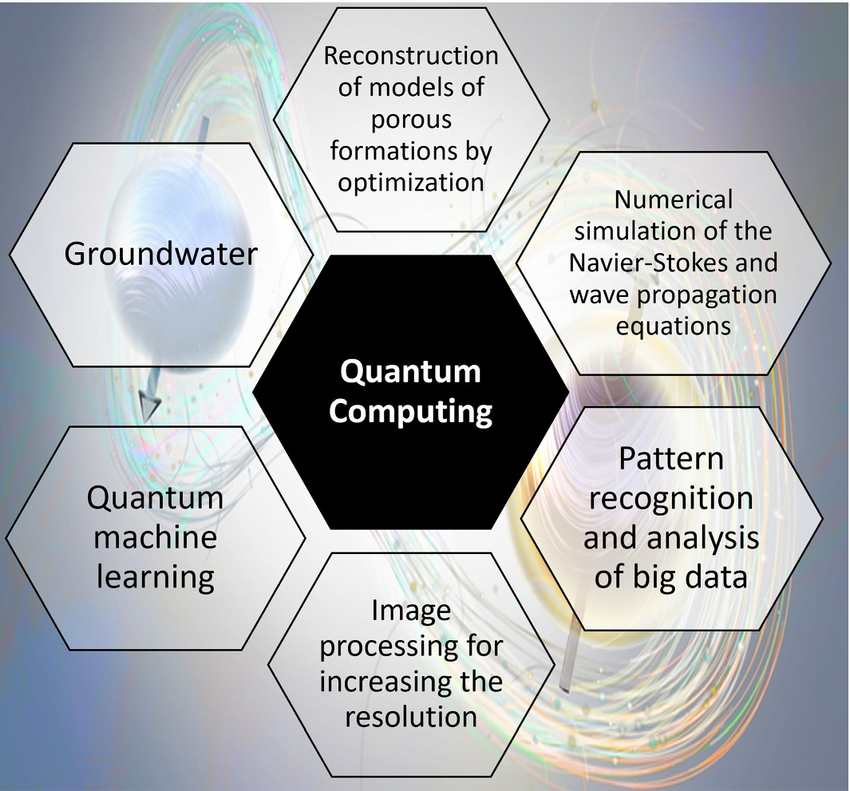
Quantum Computing for Beginners: What It Means for Our Future?
Explore how quantum computing could revolutionize industries and solve global challenges.Imagine a world where we can simulate complex molecules to discover life-saving drugs in a fraction of the time it takes today, or where we can optimize global supply chains to eliminate waste and reduce environmental impact. These scenarios, once confined to the realm of science fiction, are inching closer to reality thanks to the mind-bending world of quantum computing.
What is Quantum Computing?
At its core, quantum computing harnesses the bizarre principles of quantum mechanics to process information in ways that classical computers simply cannot[1]. While traditional computers use bits that are either 0 or 1, quantum computers use quantum bits, or qubits, which can exist in multiple states simultaneously thanks to a property called superposition[2].
Think of it like this: a classical bit is like a coin that's either heads or tails. A qubit is like a coin spinning in the air – it's both heads and tails at the same time until you measure it. This ability to be in multiple states at once allows quantum computers to perform certain calculations exponentially faster than classical computers.

The Science Behind the Magic
Two key quantum phenomena make this possible: superposition and entanglement. We've touched on superposition, but entanglement is equally crucial. Imagine two coins that are magically linked – no matter how far apart they are, when one lands on heads, the other instantly becomes tails. This "spooky action at a distance," as Einstein called it, allows quantum computers to process vast amounts of information simultaneously[2].
Why Quantum Computing Matters
The potential power of quantum computers is staggering. Problems that would take classical supercomputers thousands of years to solve could potentially be cracked by quantum computers in minutes or hours. This opens up possibilities in fields like:
- Drug discovery: Simulating complex molecular interactions to design new medications faster[1].
- Climate modeling: Creating more accurate models of global climate systems[3].
- Financial modeling: Optimizing investment portfolios and assessing risk with unprecedented accuracy[3].
- Cryptography: Both breaking current encryption methods and creating unbreakable new ones[1].
The Current State of Play
While fully-fledged quantum computers are still years away, we're making rapid progress. Companies like IBM, Google, and D-Wave are pushing the boundaries of what's possible, achieving milestones like quantum supremacy – where a quantum computer outperforms the most powerful classical supercomputers on specific tasks[1].
Challenges on the Quantum Horizon
Building practical quantum computers isn't easy. Qubits are incredibly fragile and prone to errors. Maintaining quantum states for long enough to perform useful calculations is a major hurdle. Scaling up to systems with enough qubits to outperform classical computers on a wide range of problems is another significant challenge[2].

Quantum Computing and AI: A Match Made in Silicon Heaven
The combination of quantum computing and artificial intelligence could be truly revolutionary. Quantum machine learning algorithms could analyze vast datasets and recognize patterns far beyond the capabilities of classical AI, potentially leading to breakthroughs in fields like natural language processing and computer vision[1].
Preparing for a Quantum Future
While widespread adoption of quantum computing may still be a decade or more away, its potential impact is so profound that many industries are already preparing. Developing quantum-resistant encryption, exploring potential applications, and building a workforce with quantum literacy are all crucial steps[1].
As we stand on the brink of this quantum revolution, one thing is clear: the future of computing is both exciting and unpredictable. Quantum computers promise to unlock solutions to some of humanity's greatest challenges, from climate change to disease. They may also force us to rethink fundamental concepts like privacy and security in a world where previously unbreakable codes can be cracked in seconds.
The quantum future is coming, ready or not. It's up to us to shape it responsibly and harness its incredible potential for the benefit of all. As Richard Feynman, one of the fathers of quantum mechanics, once said, "Nature isn't classical, dammit, and if you want to make a simulation of nature, you'd better make it quantum mechanical." The time to embrace that quantum reality is now.
References
- https://www.eitdigital.eu/newsroom/grow-digital-insights/unraveling-the-mystery-of-quantum-computers-for-beginners/
- https://thequantuminsider.com/2024/02/02/what-is-quantum-computing/
- https://www.techtarget.com/searchdatacenter/tip/Explore-future-potential-quantum-computing-uses
- https://www.francisxavier.ac.in/blog/quantum-computing-unraveling-the-future-of-technology
- https://www.orfonline.org/research/quantum-computing-current-scenario-and-future-prospects
- https://www.allstarsit.com/blog/the-future-of-quantum-computing-and-its-implications-for-cybersecurity
The Rise of AI Assistants in Everyday Life: Transforming Daily Tasks and Interactions






Comments
No comments yet. Be the first to comment!
Leave a Comment